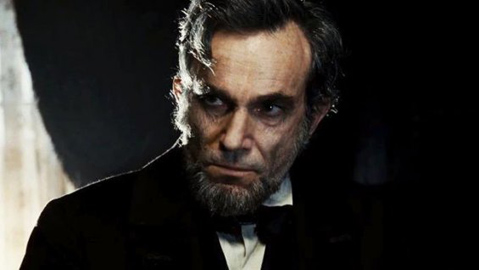Lincoln
Daniel Day-Lewis, Tommy Lee Jones, and Sally Field star in a film written by Tony Kushner, directed by Steven Spielberg.

Few names in the American history pantheon resonate with the quiet and righteous power of Lincoln, despite efforts by biographers and reality checkers to bring him down a few notches on the saint scale. Hearing about a film called, simply, Lincoln, under the directorial thumb of Steven Spielberg, no less, we might have expected a sprawling, tedious biopic, chock-full of montages and the usual yawning genre of packing a full life into a two-plus-hour package.
But no, thankfully: Spielberg, working from a sharp script by Tony Kushner — based on Doris Kearns Goodwin’s book Team of Rivals: The Political Genius of Abraham Lincoln — tells a compelling story about the breadth, majesty, humility, and vulnerability of the man. The story is told through the tightly focused narrative spectrum of a brief but critical period in Lincoln’s life, in 1865, a few months before his assassination, as he and his “Republican radical” allies fought to pass the 13th Amendment.
Make no mistake, though: Lincoln wouldn’t be half as compelling as it is without its “Lincoln,” another stunning performance by Daniel Day-Lewis, stoic and compassionate, blessed with a dry wit and human to the core. From the film’s opening scene, as soldiers quote the Gettysburg Address to the president, through Lincoln’s struggles and tenderness with his wife, Mary (Sally Field), and tussles with the stubborn and racist Democrats, Day-Lewis owns the screen much like he did in There Will Be Blood, another film where he plays a determined, vintage American character. In a way, the two stars of the film are the protagonist and cinematographer Janusz Kaminski. Visually, this Lincoln avoids the HBO historical model and instead goes for a fascinating look and texture, with brittle, naturalistic, and moody lighting, sometimes with its subjects flecked by shade or flickering half light.
Generally, Spielberg seems to be getting the hang of making films that matter and have a distinctive character; his masterful Warhorse and Lincoln are an indication. Normally, we tend to cringe when Spielberg takes on more serious subject matter, chastened by bad examples in his past filmography, but Lincoln is a powerful piece of filmmaking, as gritty period piece, cautionary tale about the follies of partisan bickering across the aisle (more relevant to the modern day than ever), and work of art that follows its own intriguing expressive lingo. Spielberg is lifting himself out of the popcorn machinery of his own devising. In short, Lincoln rules.



